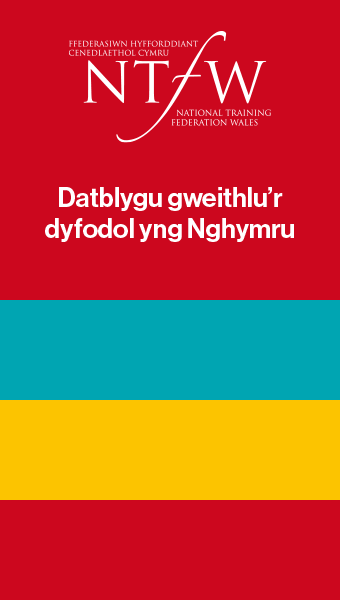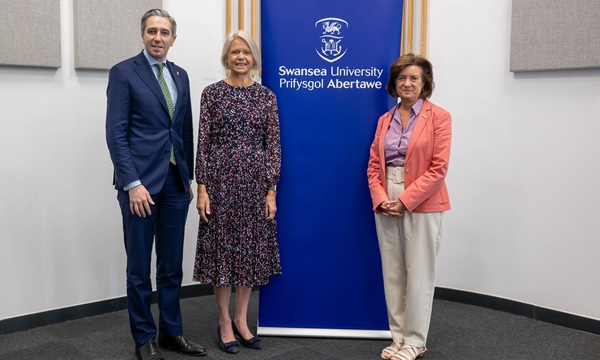
Louise Mumford is the Learning and Development Specialist at Ogi, a full fibre telecoms company based in south Wales. She offers insights on the recruitment and training challenges that small and medium-sized enterprises (SMEs) encounter as well as the significant impacts that effective learning and development strategies have on business growth.
Louise entered the corporate learning and development arena following a varied career in the post-16 education sector.
“My expertise spans from teaching and training, curriculum development, instructional design, and human resources and collaborating with people experience teams. I am dedicated to embedding learning into the very fabric of organisational culture, ensuring that it aligns with fair work principles. I’m interested in transforming the perception of workplace training from a mandatory compliance activity into an integral part of everyone’s working day. One that upholds the values of equality and respect”
Through the development of learning models, Louise aims to drive cultural change within SMEs and beyond, fostering environments where fair work is at the heart of modern businesses. However, training presents distinctive hurdles for businesses, particularly in technical sectors such as telecoms engineering. By addressing these challenges head on, we can create a more inclusive and supportive workplace where fair work practices are not just an inspiration but a reality.
As Louise explains:
“Usually, we require new engineers to come in with a whole raft of qualifications that they've already taken prior to starting work with us. Because of this, we often work within a set pool of potential employees, particularly in our field of work, and these people have generally already worked for other telecoms providers that operate in the same sphere as Ogi.
“Past qualifications have tended to place an emphasis on IT rather than the hands-on experience that many of our field engineers need. This means we need to train new members of staff after induction to make sure they have the additional skills needed or find recruits who already have this knowledge and are able to hit the ground running. This presents a challenge for newcomers to the sector.”
“As a high growth company, Ogi faces the challenge of continuously developing its internal training infrastructure. This means we need to collaborate with local training providers to ensure that the programmes available in Wales align with the specific skills our business needs.
Louise works closely with apprenticeship providers and regional skills partnerships to support the sector with addressing relevant skills gaps.
“We recently discovered a gap in our sector related to skills covering the ‘last mile’ of an installation. These are the key practical skills required for fibre installation, along with health and safety training and customer facing knowledge.
“Due to a gap in previous training, we have had to come up with innovative solutions to ensure high-quality performance in this specific field. We must ensure that our engineers receive the necessary support to deliver exceptional service, as they are the ones at the forefront of our operations.
Louise highlights a major recruitment challenge for growing businesses: positioning themselves competitively against larger enterprises to attract recruits.
“There’s often a perception that bigger is better, or at least safer. While recruits might think that smaller businesses offer lower wages, less job security and opportunity for career progression, these assumptions are not based on facts. We offer competitive salaries and opportunities for development and are working to make ourselves a real option to candidates who might believe that because we’re smaller, we can’t offer them a better package than a larger business.
“We want to recruit individuals who envision a long-term career with our company. We assess candidates holistically to see if they can apply their knowledge, use emotional intelligence, and demonstrate traits that will help them thrive in their employment. These are now the big change makers in business. As such, we make sure not to be too prescriptive in our recruitment strategies to enable a steady stream of hard-working individuals that can support our business growth.”
Facilitating a smooth transition from full-time education to the workplace, or between companies with different environments, and managing the cultural shift is also a challenge for SMEs.
“Business culture is evolving, so creating a psychologically safe environment for new recruits is important. It's crucial to adapt business operations to accommodate diverse mindsets and provide adequate support for employees.”
Louise advocates for all organisations to employ a learning and development team or individual to enable robust support for staff at all stages of their careers. This approach fosters continual learning and development, aligning with Ogi's long-term business strategy and growth objectives.
“Many organisations see learning and development as a ‘nice to have’ or something that larger organisations do, and don’t feel that it is necessarily relevant to them.
“Many of the typical challenges that come with training for businesses can be easily resolved with this support as you’ll be able to implement programmes that develop your staff. This also helps with recruiting. A company known for supporting staff becomes naturally attractive to career-oriented individuals. You’ll be seen as wanting to empower and enrich your employees and the organisation’s culture as a whole.
“At Business Wales there are Employer Engagement Advisors who can support the needs of your individual organisation and see what support is suitable for you, whether that be training courses for staff, or funding.”
As part of the Welsh Government’s support for employers, Business Wales Recruit and Train provides comprehensive support to address businesses' skills, training, and recruitment needs, including a variety of programmes aimed at helping employers access a wide and varied pool of talent including those supported by the Young Person’s Guarantee.
Its campaign, We’re in Your Corner, helps to raise awareness of the range of support available to employers to help them achieve their business goals.













